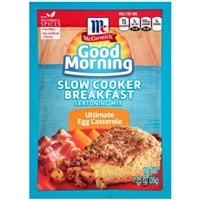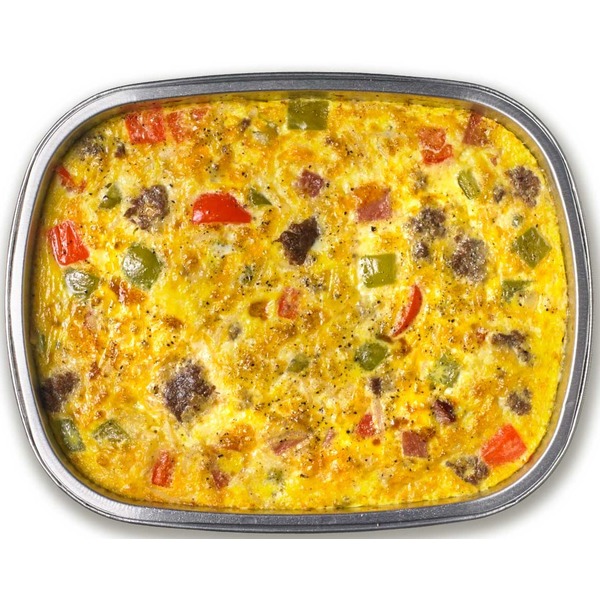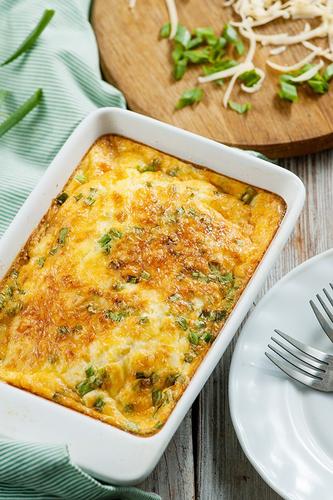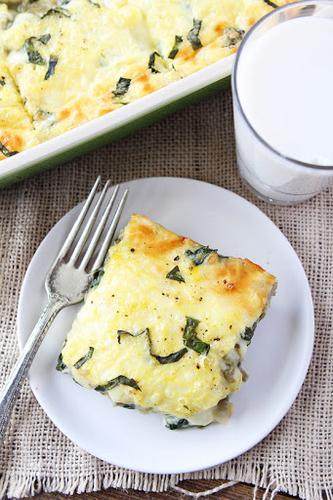Egg Casserole
Egg Casserole is the ultimate comfort food, blending nutritious ingredients such as eggs, cheese, and your choice of veggies, meat, or both into a homely dish. Often baked to perfection, it's both savory and filling, making this casserole a complete meal that could be enjoyed at any time of the day.
Easy to assembly with prep-to-table times often within an hour, the egg casserole caters to both the novice cook and the busy person. It's versatile nature allows customization to suit your palate, dietary needs or favorite ingredients, making the egg casserole an indispensable item in your cooking repertoire.
35%
CARBS
40%
FAT
25%
PROTEIN
4 Egg Casserole Products
17 Recipes for Egg Casserole
229
Everything Cheesy Potato and Egg Casserole
242
Healthy Egg Casserole
14
Spinach, Mushroom & Egg Casserole
7
Make-Ahead Biscuits and Gravy Egg Casserole
1
Veggie Breakfast Egg Casserole
17
Instant Pot Breakfast Egg Casserole
20
Sausage Egg Casserole Recipe
13
Spinach Artichoke Egg Casserole
Egg Casserole FAQ
What is an Egg Casserole?
What ingredients do I need to make an Egg Casserole?
Can I substitute ingredients in an Egg Casserole?
What cooking techniques and equipment do I need to make an Egg Casserole?
How can I adjust the consistency or texture of my Egg Casserole?
What are some common mistakes to avoid when making an Egg Casserole?
How can I store leftovers of my Egg Casserole?
Can I make an Egg Casserole ahead of time?
Expiration & Storage Tips
When does Egg Casserole expire?
If refrigerated, a homemade egg casserole can last 3 to 4 days. When it's frozen, it can last for 2 to 3 months past the day it was cooked. If it's kept at room temperature, consume within 2 hours to prevent bacterial growth.
How do you tell if Egg Casserole is bad?
The first sign of egg casserole going bad is usually a sour smell or if you notice any discoloration or mold growth. In these situations, discard the casserole immediately. If the casserole has been standing at room temperature for more than 2 hours, it's best to throw it away to be safe.
Tips for storing Egg Casserole to extend shelf life
• After the casserole has cooled down, refrigerate it within 2 hours of cooking.
• When refrigerating, keep the casserole in a shallow covered dish to decrease cooling time to prevent bacterial growth.
• If you need to store the casserole for longer than 4 days, consider freezing it. Once cooled, place it in a freezer-safe dish.
• When defrosting, transfer the casserole into the fridge a night before you want to heat and serve it.
• Reheating should reach an internal temperature of 165°F (74°C) to kill any possible bacteria before consuming.
Health Info
Macros
19g
CARBS
21g
FAT
13g
PROTEIN
Allowed on these diets
LOW FAT
HIGH CALCIUM
GLUTEN FREE
Contains these allergens
EGGS
MILK
















